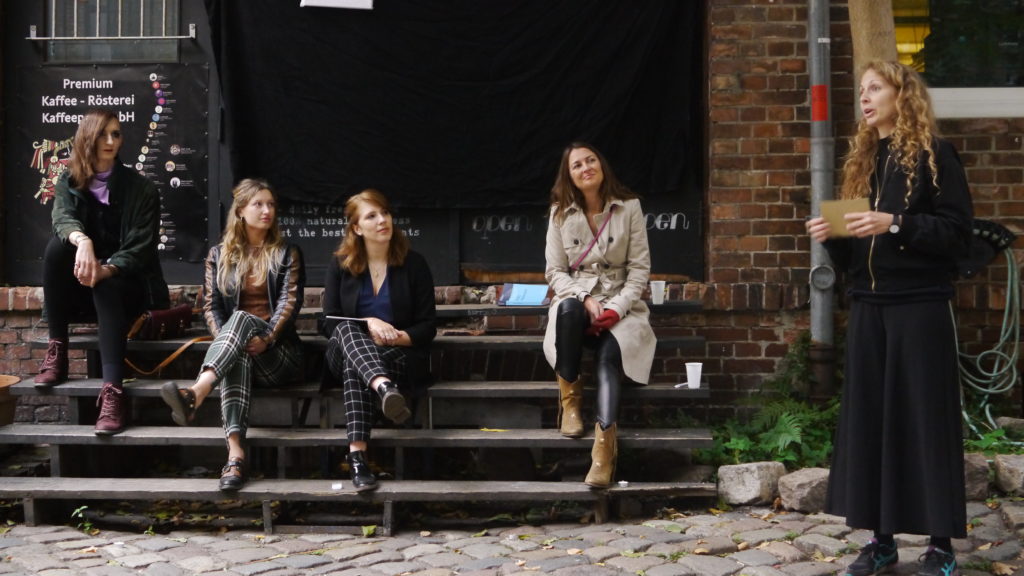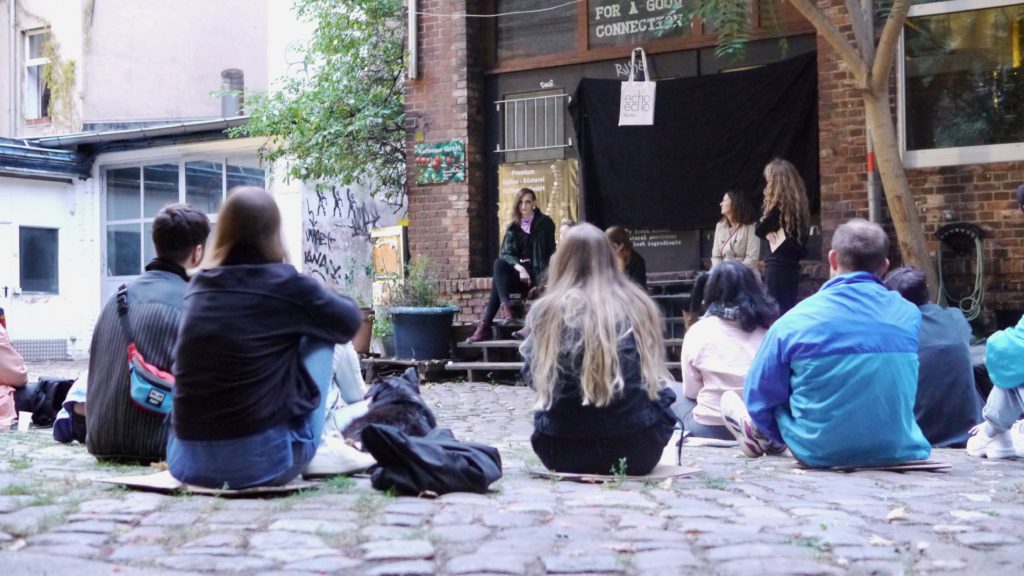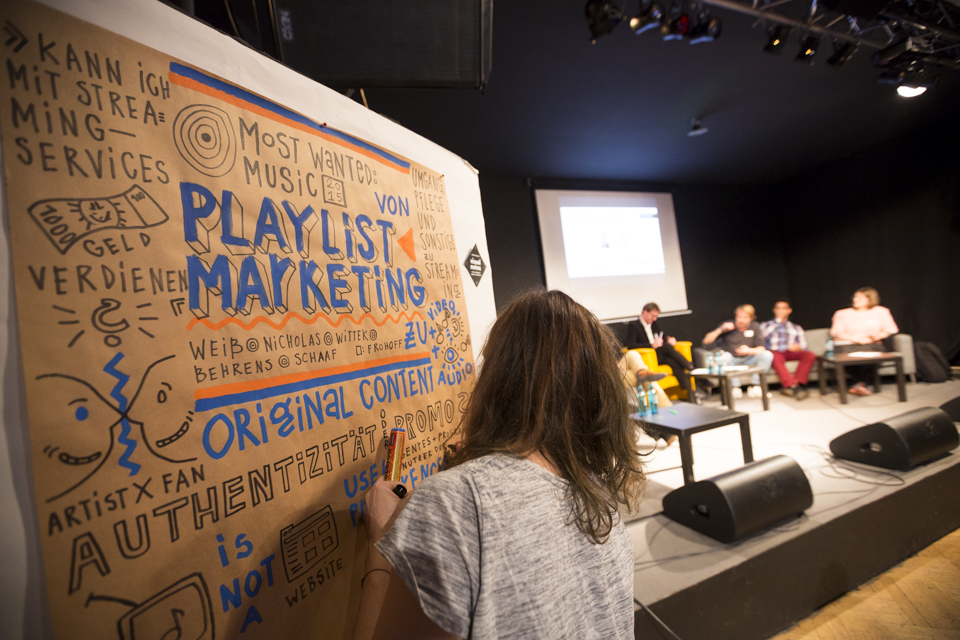On 19th October we held a panel discussion on our new GMM yearbook “Musik & Empowerment”, edited by Michael Ahlers, Lorenz Grünewald-Schukalla, Anita Jóri and Holger Schwetter. The event was hosted in the backyard of Echo Bücher, a book store with a special focus on electronic music and sonic arts. The store used to be in Wedding (Berlin), but this year it was relocated to the legendary record store Hard Wax in Kreuzberg.

Four authors of the book accepted our invitation to the panel discussion: Désirée Blank, Katja Brunkhorst, Laurena Frey and Mine Wenzel were the panelists and the discussion was moderated by Anita Jóri.
The volume “Musik & Empowerment” deals with the connection between music, business and empowerment. Empowerment is understood as the possibility of becoming visible for marginalized or relatively powerless groups. The book discusses different questions of power and exclusion in music cultures and business. How do these power relations look currently? How were they historically? Can it still be assumed that participation in group processes alone is already an essential motor for the emergence of a sense of empowerment? Or, from an individual perspective, is it more about giving individuals more control over their lives? Both aspects are highlighted by different contributions in this book and we also discussed them at this event.
The discussion started with short presentations by the panelists on their chapters in the book.

Katja Brunkhorst asked how and what women in (punk)rock write (about) themselves and their experiences in such a traditionally male-dominated scene. Being a 40+ woman “still” singing in a rock band herself she also addresses the invisibility of older women in popular culture. She focused on the question of what needs to be done today to challenge and change that status quo towards true empowerment.
Désirée Blank and Laurena Frey demonstrated their survey that examines the perception of gender equality of employees, musicians and other members of the music industry in Mannheim. Their analysis is the first step in acquiring a broader picture of gender (in-)equality in the industry. They also delivered new approaches that can be reviewed in future examinations.
Mine Wenzel digged into the potentials of techno and club cultural scenes for queer, especially trans*identification and life realities. Mine, a trans*nonbinary person themselves, understands her*self as part of the research and offered an inside perspective as musician* and consumer*, by including their own records of recollection as well as interviews with fellow queer participants of the researched scene. Their presentation prevented a breakdown of contemporary, anti-diagnostic, self-determined definitions of gender, sex and gender identity and looks for points of resonance for these lived realities within techno-based music scenes.
After these short presentations, the panel discussed two possible levels of empowerment: community-based empowerment and the individually created empowerment as such. All participants expressed their opinion on the importance of networks and communities that can be empowering for their participants. They all agreed on the power of these organizations that also create safe spaces for marginalized groups. As soon as individuals are empowered by such communities, they are able to bring that collected knowledge and experience into their individual lives and adapt them in their own ways.
It was a very lively and sometimes passionate discussion about highly important topics that are oftentimes excluded from research on music business and culture.
Hereby, we would like to thank the active participation of the panelists and the audience of this event. Also, big thanks to David Armengou from Echo Bücher who kindly hosted us on this warm late summer evening. We hope to continue this fruitful collaboration.
